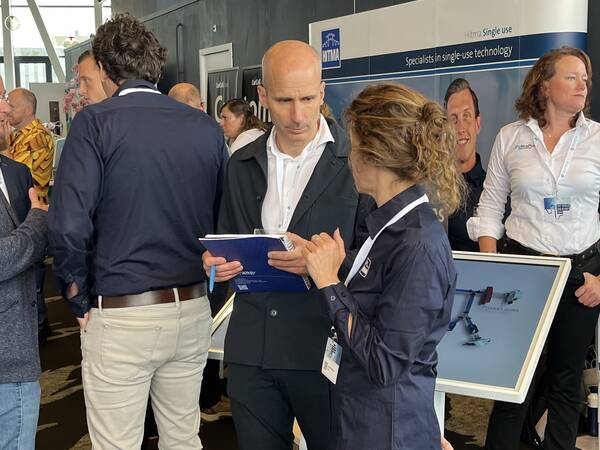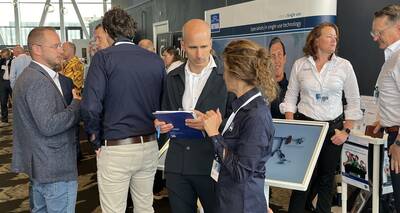

Last week I visited the Single-use Event 2025 where once again suppliers, end-users, and other professionals in the (bio)pharmaceutical industry came together to discuss product innovations, technological advancements, and industry challenges. As Hitma's Sustainability Expert, the event left me with mixed feelings. Amidst the great atmosphere and many interesting conversations, I found myself wondering where the focus on sustainability and responsibility was.
Exhibitors show little focus on sustainability
Walking the exhibition floor and admiring the many impressive stands, I was surprised by how little exhibitors had considered sustainability. Booth designs showed no effort to incorporate circularity, and I only found two stands that shared flyers about sustainable initiatives. Conversations about sustainability were rare, and when they did happen, they often revealed that companies are still only doing the bare minimum in terms of sustainability.
What also stood out was the absence of real investment in sustainable product offerings. No companies presented tangible solutions at their booths to reduce environmental impact. Reinventing the wheel is difficult and costly, but without a stronger push for innovation the industry risks falling behind both legislation and public expectations.
Fewer speakers address sustainability than last year
Compared to last year's event, the conference programme offered far less on sustainability. Last year included more focus, with memorable contributions such as TNO’s talk on their sustainable packaging initiative. This time, there were only two presentations that addressed the issue in any depth.
One highlighted a reusable stainless steel clamp. While the idea was promising, it requires a specialised sterilisation machine, which raises the question of whether we are simply shifting the environmental burden from materials to energy. The other talk dealt with new approaches to freezing and sterilisation using single-use components, but again the energy intensity was left unaddressed. What disappointed me most was not only the reduced number of talks but also the lack of deeper understanding of what true sustainability means for our industry.
This tick-box approach shows a lack long-term thinking and willingness to take ownership of sustainability goals
Barriers holding back real change
The event confirmed what I see as the biggest challenges for (bio)pharmaceutical companies. Reliable information on sustainability is scarce, and responsibility is often placed upon individuals in finance or quality departments, who have little space to research strategies beyond compliance. At the same time, EU regulations on sustainability reporting are becoming stricter, yet many companies are still limiting themselves to basic ESG reporting. This tick-box approach shows a lack long-term thinking and willingness to take ownership of sustainability goals.
Cost remains another significant barrier. Developing sustainable alternatives is expensive, and strict GMP requirements make progress even harder. For example, removing a single layer of packaging can already render a product unusable. Despite these challenges, I see opportunities in recycling and repurposing single-use components. With the launch of our Return and Recycling service for expired products, I have seen first-hand the impact of such initiatives and how they can inspire other parties to think about new ways of reducing and recycling.
Disappointing lack of accountability
Overall, this year’s event left me disappointed. Sustainability was hardly visible in the exhibition halls, and the speaker programme devoted little space to it. What shocked me most was the lack of accountability from exhibitors and companies in general. Too often, companies are dragging their feet and climate action is only taken when regulations require it, and even then the bare minimum is done.
Nevertheless, the event showed me that there are still many opportunities for collaboration and innovation. One of the event's organisers told me that sustainability will play a more central role at next year’s event. I hope this will contribute to the shift we so direly need, because real progress will only come with stronger commitment and responsibility.
Are you active in the (bio)pharmaceutical industry and would you like to discuss sustainability (challenges) with me? Feel free to contact me.


